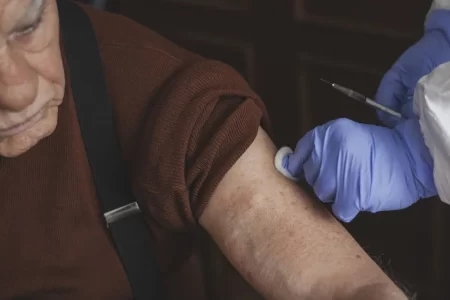In this blog, we will delve into the role of immunotherapy in addressing skin cancer and its impact on the medical field.
Understanding Skin Cancer and Conventional Treatments
Skin cancer, the abnormal growth of skin cells, can be broadly categorized into three types: basal cell carcinoma, squamous cell carcinoma, and melanoma. Traditional treatment methods, including surgery, chemotherapy, and radiation therapy, have been adequate to some extent. Still, they often come with challenges, such as adverse side effects and limited success rates in advanced cases.
In recent years, the focus has shifted toward targeted therapies and immunotherapy, providing a more precise and efficient way to combat this formidable disease. One of the key players in this transformation is the Contract Research Organization (CRO), which plays a vital role in developing and testing new treatment modalities.
The Role of Immunotherapy in Skin Cancer Treatment
Immunotherapy is a groundbreaking approach that harnesses the body’s immune system to recognize and fight cancer cells. Unlike traditional treatments that directly attack cancer cells, immunotherapy enhances the immune system’s ability to identify and eliminate these abnormal cells.
Several types of immunotherapy are used in skin cancer treatment, including immune checkpoint inhibitors, cancer vaccines, and adoptive T-cell therapy. Immune checkpoint inhibitors, for instance, are designed to block specific proteins that prevent immune cells from attacking cancer cells. The immune system can effectively recognize and target cancer cells by inhibiting these proteins, improving treatment outcomes.
Contract Research Organizations (CROs) in Immunotherapy Advancements
Developing and approving new immunotherapeutic treatments for skin cancer rely heavily on meticulous research and testing. This is where Contract Research Organizations come into play. CROs (Contract Research Organizations) are specialized entities collaborating with pharmaceutical companies, researchers, and regulatory agencies to facilitate clinical trials and accelerate drug development.
CROs provide a wide range of services, from study design and patient recruitment to data collection and analysis. In the context of immunotherapy for skin cancer, they play a pivotal role in conducting rigorous clinical trials to evaluate the safety and efficacy of novel treatments. These trials involve diverse patient populations and are conducted under strict regulatory guidelines to ensure the reliability of the results.
By partnering with CROs, pharmaceutical companies can efficiently navigate the complex landscape of clinical research, ultimately expediting cutting-edge immunotherapies available to needy patients.
The Impact of Immunotherapy on Skin Cancer Treatment
The advent of immunotherapy has brought about a paradigm shift in skin cancer treatment. Unlike traditional therapies that often result in severe side effects and limited success rates, immunotherapy offers a more targeted and personalized approach. Patients undergoing immunotherapy may experience fewer adverse effects than chemotherapy or radiation therapy.
Furthermore, immunotherapy has demonstrated remarkable success in advanced cases of skin cancer, including metastatic melanoma. Previously considered a highly aggressive and challenging-to-treat cancer, metastatic melanoma has shown positive responses to immune checkpoint inhibitors, leading to prolonged survival rates and improved quality of life for patients.
The Future of Skin Cancer Treatment
The rapid progress of immunotherapy in skin cancer treatment underscores the potential for continued advancements in the field. Researchers are actively investigating novel combinations of immunotherapeutic agents, exploring their synergistic effects, and enhancing our understanding of the immune system’s intricate role in cancer suppression.
As technology and medical knowledge continue to evolve, the collaboration between pharmaceutical companies, research institutions, and CROs will play a pivotal role in accelerating the development and accessibility of innovative treatments. The future holds promise for refining existing immunotherapies, discovering new targets for intervention, and expanding the range of patients who can benefit from these treatments.
Conclusion
Immunotherapy’s emergence as a game-changing approach to skin cancer treatment brings renewed optimism to patients and healthcare professionals alike. Its ability to harness the body’s immune system to target cancer cells opens new avenues for effective and personalized treatment strategies. While challenges persist, the collaborative efforts of researchers, pharmaceutical companies, and Contract Research Organizations are driving progress and expanding the horizons of cancer care.
As we progress, we must maintain a patient-centered approach, prioritize research into combination therapies, and ensure equitable access to these life-saving treatments. With continued research, innovation, and collective determination, immunotherapy has the potential to transform skin cancer treatment from a once-daunting challenge into a beacon of hope for a brighter, healthier future.







